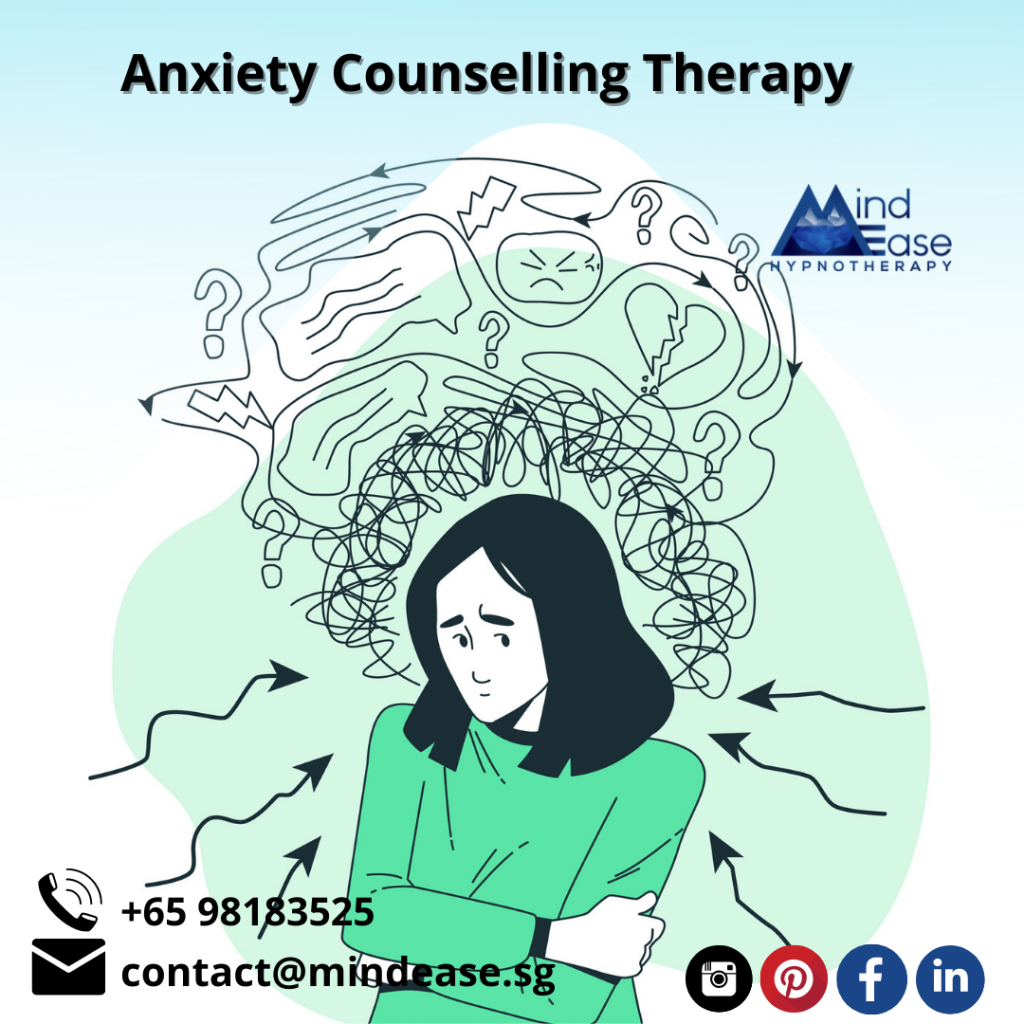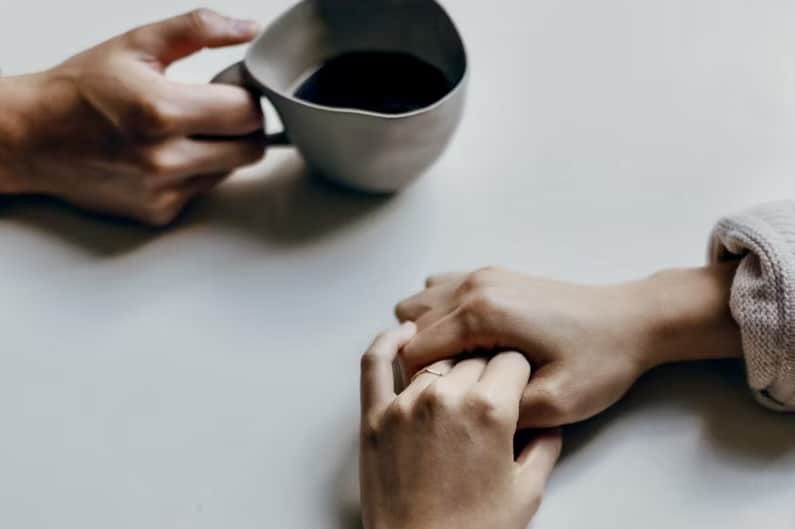Reclaim your emotional health through therapeutic therapy for anxiety
Discovering Various Methods in Therapy for Anxiousness Problem for Long Lasting Change
When taking on anxiety conditions, it's important to discover a range of therapy methods. Each method uses one-of-a-kind insights and tools to help you manage your signs and symptoms effectively. You could discover that combining methods can yield the very best results. Comprehending the subtleties of these techniques is vital to fostering long lasting change. What happens if the appropriate mix could launch a new level of emotional wellness for you?
Understanding Anxiousness Conditions: A Short Introduction
Anxiousness disorders, which affect countless people worldwide, can considerably influence life. You might experience frustrating feelings of concern or worry that appear uncontrollable. These feelings can lead to physical signs like a racing heart, sweating, or perhaps dizziness. Common kinds of anxiousness conditions consist of generalized anxiousness condition, panic attack, and social anxiousness disorder. Each has distinct indicators, but they all share a propensity to disrupt your routine and relationships.Understanding the root creates of your anxiousness is essential. It could stem from genes, mind chemistry, or life experiences. Identifying your triggers can help you handle your actions better. It is very important to bear in mind that you're not the only one in this battle. Many people encounter similar difficulties, and seeking aid is a solid action toward feeling better. By learning more about anxiety problems, you're currently on the path to understanding and handling your problem more successfully.
Cognitive-Behavioral Therapy: Testing Adverse Thought Patterns
In Cognitive-Behavioral Treatment, you'll begin by recognizing the unfavorable thought causes that add to your anxiousness. You'll function on replacing them with more positive options once you recognize these thoughts. Together, you'll build effective coping strategies to help manage your anxiety in day-to-day circumstances.
Determining Negative Thought Triggers

Acknowledging the certain triggers behind your negative thoughts can be vital in managing anxiety when you come across moments of distress. Begin by paying focus to scenarios that provoke sensations of worry or concern. Is it a jampacked area, a forthcoming due date, or a discussion with particular individuals? Write down these instances in a journal. This will assist you recognize patterns in your thinking. Likewise, notification physical sensations that accompany your negative ideas, like an auto racing heart or rigidity in your chest. By pinpointing these triggers, you acquire understanding right into what's fueling your anxiousness. Recognizing these links is the first action in testing those thoughts and ultimately reclaiming control over your emotional responses.
Replacing Ideas With Positives
Testing unfavorable idea patterns is a necessary step in transforming your state of mind and reducing stress and anxiety. You may usually find yourself caught in cycles of self-doubt or devastating thinking. Instead of allowing these thoughts determine your feelings, technique changing them with positive affirmations or practical options. When you think, "I can't manage this," move it to, "I can handle challenges one action at a time." This simple modification can substantially affect your emotional state. Routinely determining and countering these adverse thoughts helps produce a much healthier inner discussion. Bear in mind, it requires time and initiative, however continually exercising this method can cause long-term change, empowering you to encounter anxiousness with renewed confidence and strength.
Building Coping Strategies With Each Other
Replacing unfavorable ideas is just the start of managing stress and anxiety efficiently. To create long lasting change, you need to build coping approaches that equip you. Cognitive-Behavioral Treatment (CBT) assists you determine and challenge those unhelpful idea patterns. Together, you and your therapist can discover how these thoughts impact your sensations and behaviors.Start by developing useful techniques, like journaling or mindfulness exercises, that permit you to confront stress and anxiety head-on. When you encounter your anxieties progressively, you'll learn to respond differently.

Mindfulness and Acceptance-Based Approaches: Growing Present-Moment Recognition
As you browse the intricacies of anxiety, incorporating mindfulness and acceptance-based methods can considerably boost your ability to grow present-moment awareness. By concentrating on the present moment, you'll find that you can observe your ideas and sensations without judgment (Counseling services for anxiety). This practice aids you acknowledge your stress and anxiety without really feeling overwhelmed by it.Engaging in mindfulness workouts, such as deep breathing, body scans, or assisted meditations, enables you to ground on your own in your existing experience. Acceptance-based techniques urge you to welcome your feelings instead than deal with versus them. When you approve your sensations, they shed their power over you.Incorporating these techniques right into your daily routine can change exactly how you react to anxiety. You'll create resilience and discover to navigate demanding situations with greater simplicity. Inevitably, cultivating present-moment understanding lays the structure for long lasting modification, encouraging you to lead an extra fulfilling life
Exposure Therapy: Facing Concerns Slowly
Direct exposure treatment helps you challenge your concerns in a progressive means, making it much less frustrating. You'll discover methods to deal with anxiety-provoking circumstances step by step, while additionally constructing coping approaches to handle your responses. This technique equips you to take control and decrease anxiety over time.
Steady Direct Exposure Methods

When encountering anxiousness, slowly confronting your concerns can be a powerful means to restore control. This strategy, referred to as gradual direct exposure, involves gradually exposing yourself to the scenarios or items that cause your stress and anxiety. Beginning with less daunting scenarios and slowly function your way approximately more difficult ones. For circumstances, if you hesitate of public speaking, you may begin by talking in front of a mirror, after that progress to sharing thoughts with a friend, and ultimately resolve a small group. Each step assists desensitize you to the fear, developing your self-confidence in time. Bear in mind, it's important to pace yourself and celebrate small victories more info as you relocate through this process, strengthening your capacity to manage anxiety successfully.
Structure Coping Approaches
Structure effective coping techniques is necessary for taking care of anxiousness, especially as you confront your fears gradually - Counseling services for anxiety. One powerful method is exposure therapy, where you start by facing your fears in a controlled manner. Begin with less intimidating circumstances and gradually function your means approximately more difficult scenarios. This progressive exposure aids desensitize you to anxiety sets off, making them much less overwhelming.Incorporate leisure strategies, such as deep breathing or mindfulness, to calm your mind during exposure. Track your development, commemorating small success in the process to boost your confidence. Keep in mind, it's fine to take your time; the objective isn't perfection however consistent enhancement. By building these strategies, you'll empower on your own to browse anxiousness and welcome life extra completely
Psychodynamic Treatment: Revealing Origin Causes of Stress And Anxiety
Psychodynamic treatment discovers the subconscious mind, disclosing the origin of your stress and anxiety. By examining your ideas, sensations, and past experiences, this approach aids you discover underlying conflicts and unsolved problems that might add to your current anxiousness. You'll collaborate with a therapist to check out childhood experiences, relationships, and psychological patterns that shape your actions today.As you gain understanding into these much deeper layers of your psyche, you'll begin to recognize just how past occasions influence your present habits. This understanding can lead to catharsis, permitting you to process feelings you might have suppressed.Through the therapeutic partnership, you can likewise recognize defense reaction that may have established with time, providing a more clear course to change. Inevitably, psychodynamic treatment equips you with the devices to resolve your anxiety at its core, promoting long-term improvement in your psychological well-being.
All Natural and integrative Methods: Integrating Strategies for Greater Efficacy
Integrating different restorative strategies can enhance your journey towards taking care of anxiety a lot more effectively. By integrating components from cognitive-behavioral treatment, mindfulness practices, and holistic methods, you can develop a personalized technique that addresses your special demands. You might utilize cognitive-behavioral strategies to test adverse idea patterns while integrating mindfulness exercises to ground yourself in the present moment.Additionally, exploring holistic techniques such as yoga exercise or reflection can advertise relaxation and decrease anxiety symptoms. This blend allows you to establish better self-awareness and resilience.Experimenting with these varied approaches can help you discover what resonates most with you. Keep in mind, it's concerning finding a harmony that functions, instead of adhering to a single technique. This integrative method not only supplies prompt alleviation but additionally promotes lasting skills for taking care of anxiousness, encouraging you to recover control over your life.
The Function of Support Equipments: Building Resilience Through Connection
While it may appear that taking care of anxiety is a solitary journey, having a solid support group can play a vital function in your durability. Bordering yourself with understanding buddies, family, or support system produces a safe area where you can freely share your sensations and experiences. You remind yourself that you're not alone in this struggle.These partnerships use inspiration and can give sensible coping strategies that have worked for others when you attach with others. It's additionally an opportunity to obtain point of view; pals can aid you see scenarios in different ways, minimizing sensations of isolation.Moreover, psychological assistance fosters a sense of belonging, which can substantially ease stress and anxiety signs and symptoms. By leaning on your support group, you can build durability and deal with difficulties better. Bear in mind, connecting for assistance is a sign of toughness, and it can make all the distinction in your trip towards handling anxiousness.
Frequently Asked Inquiries
What Are the Typical Symptoms of Anxiousness Conditions?
You may experience restlessness, fatigue, difficulty focusing, impatience, muscle tension, and rest disturbances. Physical symptoms can consist of quick heartbeat, sweating, and shivering. Acknowledging these signs early can aid you look for ideal assistance and treatment.
The Length Of Time Does Treatment Normally Last for Anxiousness Problems?
Treatment for anxiety problems normally lasts anywhere from a couple of weeks to numerous months. It actually depends upon your specific demands, development, and the strategies your therapist uses to help you manage your anxiousness properly.
Can Drug Be Used Together With Therapy for Anxiety?
Yes, drug can most definitely be used together with therapy for anxiety. Incorporating both techniques frequently boosts therapy efficiency, aiding you take care of symptoms while checking out underlying problems with counseling (Counseling services for anxiety). Always consult your doctor for personalized advice
Exist Self-Help Methods for Taking Care Of Stress And Anxiety?
Yes, there are several self-help strategies for taking care of anxiety. You can exercise mindfulness, involve in normal exercise, maintain a balanced diet, develop a routine, and use deep breathing strategies to help reduce anxiousness signs and symptoms properly.
Exactly how Do I Know if I Need Expert Aid for Anxiousness?
